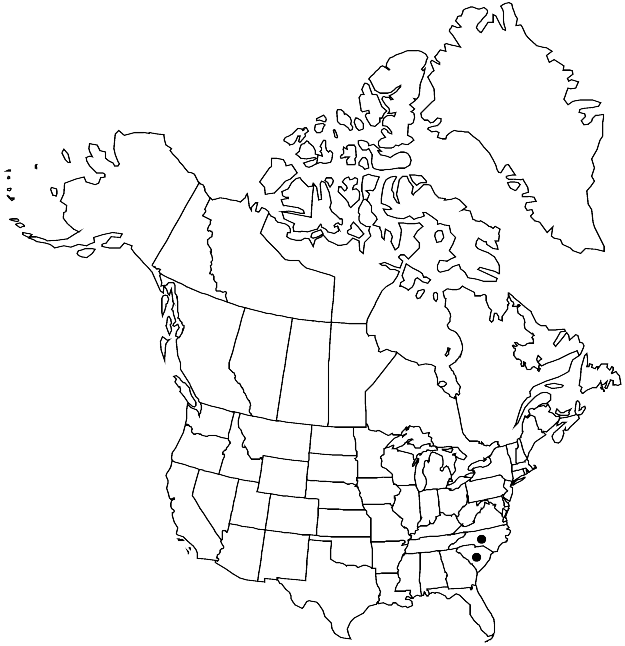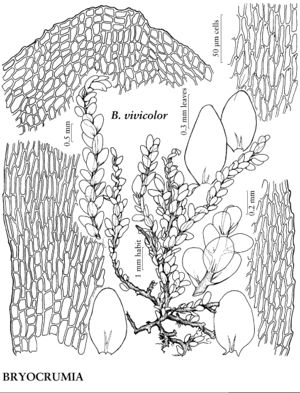Bryocrumia vivicolor
Mem. New York Bot. Gard. 45: 522. 1987.
Selected by author to be illustrated
Basionym: Taxithelium vivicolor Brotherus & Dixon
Synonyms: Bryocrumia andersonii (E. B. Bartram) L. E. Anderson Glossadelphus andersonii E. B. Bartram G. vivicolor (Brotherus & Dixon) Brotherus Taxiphyllum andersonii (E. B. Bartram) H. A. Crum
Treatment appears in FNA Volume 28. Treatment on page 517.
Revision as of 17:08, 18 September 2019 by FNA>Volume Importer
Stems 1 cm, moderately complanate-foliate, branches usually simple, short, sometimes tapered to apex, somewhat remotely foliate; epidermal cells small, walls thick, in 2 or 3 rows, surrounding larger, thinner walled cells; axillary hair basal cell 1, distal cells 3. Leaves soft, 0.7–0.8 mm; alar cells few, region in 2–5 rows in extreme basal angles; laminal cells oblong-rhomboidal, 10–25 × 5 µm, walls often firm; apical cells shorter.
Phenology: Capsule maturity unknown.
Habitat: Moist, shaded rock in cool ravines
Elevation: moderate elevations (400-500 m)
Distribution

N.C., S.C., Asia (China, India, Sri Lanka), Africa (Kenya, Uganda, Zaire).
Discussion
Bryocrumia vivicolor is distinguished by the slender habit, obtuse leaf apices, and wet rock substrate.
Selected References
None.
Lower Taxa
None.
